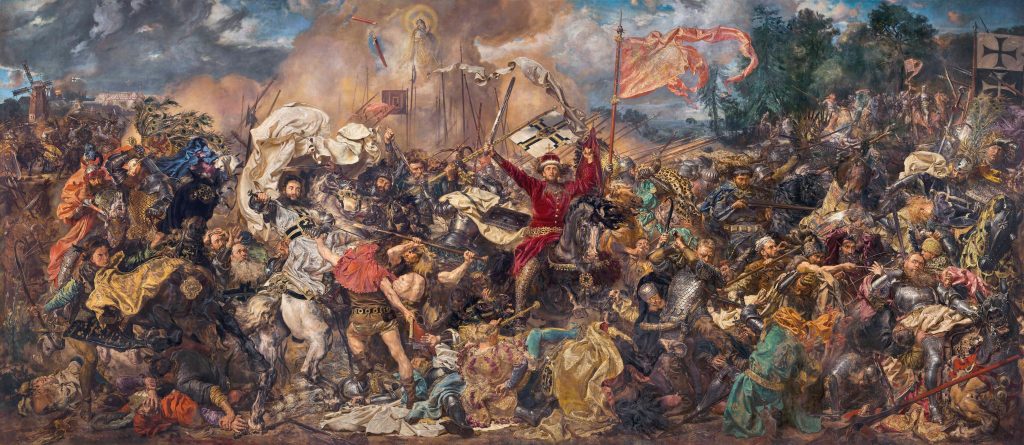Notable events in the month of October in the 1900s

October is the tenth month of the year in the Julian and Gregorian calendars, and the sixth of seven months with a duration of 31 days. October, the eighth month in Romulus’ ancient calendar about 750 BC, preserved its name (from Latin and Greek ôct meaning “eight”) when January and February were introduced into the calendar that the Romans had originally constructed. In Ancient Rome, one of three Mundus patet would take occur on October 5, Meditrinalia on October 11, Augustalia on October 12, October Horse on October 15, and Armilustrum on October 19. These dates do not correlate to the contemporary Gregorian calendar. It was known as Winterfylleth (interfylle) among the Anglo-Saxons because winter was expected to arrive during this full moon.
October is typically connected with spring in the Southern Hemisphere and fall in the Northern Hemisphere, where it is the seasonal counterpart of April in the Southern Hemisphere and vice versa.
Indigenous Peoples’ Day
Celebration of Indigenous Peoples’ Day
Also known as First Peoples Day, National Indigenous Peoples Day, Columbus Day, or Native American Day, it is observed on October 11th by several states and municipalities throughout the Americas in place of Columbus Day.
A day dedicated to Native Indigenous Americans in opposition to Columbus Day.

Annually since October 11, 1992
In relation to Canada’s National Indigenous Peoples Day
Indigenous Peoples’ Day is a US holiday that celebrates and respects Native American peoples, as well as commemorating their history and customs. On October 8, 2021, U.S. President Joe Biden became the first President of the United States to legally commemorate the holiday by issuing a presidential proclamation establishing October 11, 2021, as National Day of Service, to be declared a national holiday It is observed on the second Monday of October throughout the United States and is a city and state holiday in some areas. It originated as a counter-celebration on the same day as Columbus Day, a federal holiday in the United States honouring Genovese-born explorer Christopher Columbus. Some object to his celebration, claiming that he embodies “the brutal history of colonialism in the Western Hemisphere.” Indigenous Peoples’ Day was established in 1992 in Berkeley, California, to commemorate the 500th anniversary of Columbus’ landing in the Americas on October 12, 1492. Santa Cruz, California, introduced the holiday two years later. Since 2014, numerous more cities and states have observed the holiday.
World smile day
Harvey Ross Ball (July 10, 1921 – April 12, 2001) was a commercial artist from the United States. He is credited with creating a popular smiley graphic image that became a lasting and recognisable international icon. He never registered for a trademark on the renowned smiling face and received only $45 for his efforts. In 1999, Ball established the World Smile Foundation, a non-profit charity foundation that promotes children’s concerns.

Although it was not part of Ball’s original design, the phrase “Have a pleasant day” became connected with the smiley. In the early 1970s, Philadelphia brothers Bernard and Murray Spain created and sold goods with the tagline and logo. They patented the phrase and eventually altered it to “Have a lovely day,” which has now become a common phrase in North America.
The smiley was first used in France in 1972 to indicate a positive news report in the daily France-Soir. Franklin Loufrani, a Frenchman, utilised the image in this manner and quickly trademarked it. As of 2013, the corporation had a yearly revenue of $100 million and was entangled in a copyright battle with Walmart over the image in question.
Fiji Week
Fiji Week is an annual celebration that culminates in Fiji Day on 10 October (the anniversary of Fiji’s independence from British colonial authority in 1970). Every year, a new subject is chosen, although typical aspects include religious services and cultural events.
Fiji Week is the week before Fiji Day. Fiji Day celebrated on October 10, which is a double anniversary for the country. Fiji was given to the United Kingdom on this day in 1874 by King Seru Epenisa Cakobau. Fiji regained independence on the same date in 1970.
During Fiji Week, the country celebrates its unity as well as its religious and cultural variety with performances and events centred on the two primary ethnic cultures — Fijan and Indian. Traditions are observed by Christians, Muslims, and Hindus. Every year, a new subject is chosen, although typical aspects include religious services and cultural events.
Several notable politicians and other public personalities boycotted Fiji Week 2004 because they accused the government of utilising the occasion to pursue a political agenda.
October 1914
Battle of Arras (1914)
The Battle of Arras (also known as the First Battle of Arras, 1-4 October 1914) was an attempt by the French Army to outflank the German Army, which was also attempting to outflank the French Army during the “Race to the Sea,” the reciprocal attempts by both sides to exploit conditions created by the First Battle of the Aisne. [a] During the First Battle of Picardy (22-26 September), each side attacked expecting to push around an open northern flank, only to discover that forces from farther south had arrived and extended the flank northwards.

On 1 October, the Tenth Army, under French General Louis Maud’huy, assaulted advancing German forces and reached Douai, where the 6th Army, directed by Crown Prince Rupprecht, counter-advanced, while three corps of the German 1st, 2nd, and 7th armies attacked farther south. The French were forced to retreat towards Arras, and on October 4, German forces took Lens. At the Battle of La Bassée, both sides utilised reinforcements to make another flanking thrust farther north, and attempts to envelop Arras from the north were unsuccessful (10 October – 2 November). Both sides reached the North Sea coast and tried breakthrough attacks during the First Battle of Flanders, bringing the reciprocal flanking operations to an end.
Battle off Texel
The Combat of Texel, also known as the Action of Texel or the Action of 17 October 1914, was a First World War naval battle off the coast of the Dutch island of Texel. On a routine patrol, a British squadron of one light cruiser and four destroyers intercepted the German 7th Half Flotilla of torpedo boats en way to the British shore to lay mines. The British troops attacked, and the outgunned German force fled, only to fight a desperate and unsuccessful battle against the British forces, which sunk all four German boats.
The action resulted in the defeat of the German torpedo boat squadron and the prohibition of mining key maritime channels like the mouth of the River Thames. The British suffered few deaths and suffered minimal damage to their ships. The fight altered the tactics and dispositions of the surviving German torpedo boat flotillas in the North Sea area, as the loss shaken their commanders’ conviction in the force’s efficiency.



